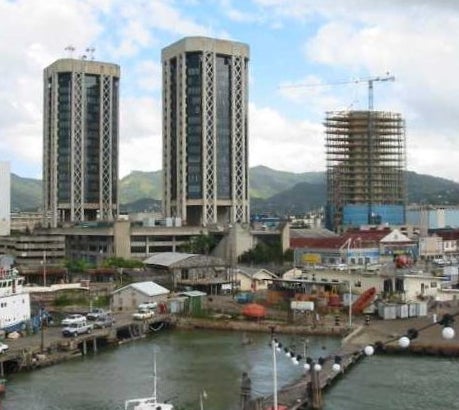Will Trinidad & Tobago’s energy services suppliers outlast the country’s energy supply? This was one of the questions posed to the participants of the Joint Dialogue on the Trinidad & Tobago Private Sector Assessment Report (PSAR) by Dr. Carlos Elias, author of the PSAR, in Port of Spain, February 19. The Joint Dialogue was hosted by the Ministry of Planning and Sustainable Development, in collaboration with the Inter-American Development Bank (IDB), and aimed to engage key public and private sector stakeholders on a set of proposed actions related to the six priority areas identified in the PSAR:
- Facilitating the expansion and specialization of the energy service sector;
- Improving the business climate with a focus on consumer protection and market efficiency;
- Ensuring competitive market mechanisms for imports into Trinidad and Tobago;
- Increasing access to finance;
- Creating employment opportunities for the young; and
- Filling in data gaps.
In addition to issues related to youth employment and import markets, participants expressed their views on a range of topics related to the main finding of the PSAR; namely, that specialization in goods and services sold to the energy sector offers a long-term opportunity for growth that should be encouraged in the country. Participants discussed such issues as: the types of support necessary to help this sector flourish; business climate issues related to the energy services sector, such as VAT treatment on imported equipment; the need for the country to have trade missions in key markets outside TT, including in African markets; challenges in collateralizing equipment and other assets to facilitate greater access to capital; the need to delve deeper into the experiences of the services firms exporting to understand what is working; the need for a global value chain analysis of the industry and where it is going in the medium-term; and, the importance of the opportunity for other related sectors to tap into a global value-chain such as this one, among other issues.
The participants in the Joint Dialogue affirmed the need for action across the six areas identified in the PSAR, and expressed their eagerness to see the results of this initiative. Over 60 private and public sector leaders as well as youth representatives attended the dialogue.
The Trinidad and Tobago PSAR was developed with the support of the Compete Caribbean Program. Compete Caribbean is a private sector development program that provides technical assistance grants and investment funding to support productive development policies, business climate reforms, clustering initiatives and Small and Medium Size Enterprise (SME) development activities in the Caribbean region. The program, jointly funded by the Inter-American Development Bank (IDB), the United Kingdom Department for International Development (DFID), and Foreign Affairs, Trade and Development Canada (DFATD), supports projects in 15 Caribbean countries. Projects in the OECS countries are implemented in partnership with the Caribbean Development Bank.



Leave a Reply